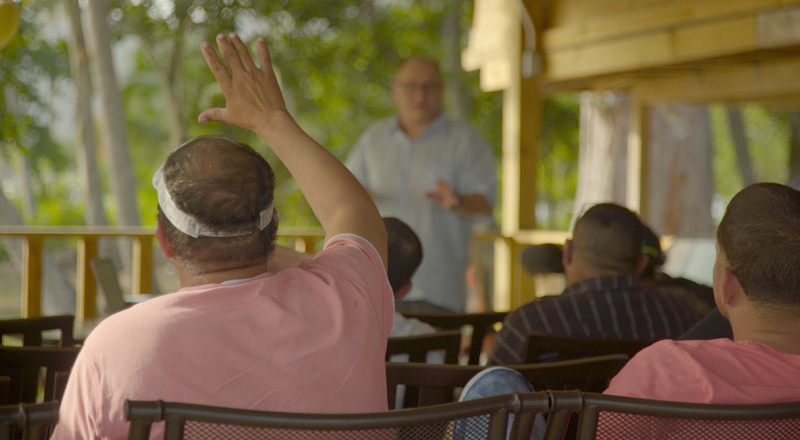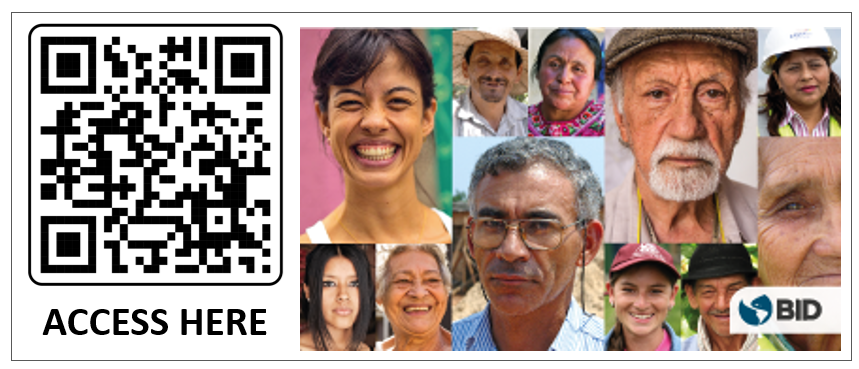In recent decades, the role and scope of the third development actor “civil society” has been modernized, with impacts on the other two actors: governments and the private sector. Traditionally, civil society was associated with -and limited to- non-governmental organizations. This has been modernized to a broader one such as stakeholders, organized civil society and citizenship.
Organized civil society includes a vast and rich diversity of interest groups: social enterprises, academia, industry federations, chambers of commerce, construction and tourism, representatives of the productive sector, labor unions, indigenous peoples’ groups, Afro-descendant groups, peasant groups, foundations, churches, religious institutions, women’s groups, professional associations, vulnerable groups, sexual minorities, among others.

Stakeholders are understood as any person or group with a binding interest in a policy, initiative, strategy or project.
By citizenship, we mean perhaps the most novel aspect of civil society as an actor in development, whose particularity is that they do not recognize territorial boundaries, being people who exert pressure to advance a given issue (for example, improvements in redistributive policies, gender equality actions, access to financing, lobbying for sexual rights, etc.). These actions, which are organized at an unprecedented speed with the use of new technologies and their low transaction costs, have an impact on governments, the private sector and civil society itself.
Viralizing content is possible with just a cell phone; claims against initiatives/situations they oppose are public with a single click and can trigger strong and unexpected social conflicts on a global scale in a matter of seconds.
Added to this, in a delicate post-pandemic context and with growth for Latin America forecast by the IMF at 1.8%, below the global average of 2.9%, social polarization and discontent are deepening even more.

Faced with this scenario, we at the IDB Group realized that with the instruments we had we could not make the qualitative leap we needed. That is why we updated our tools to be able to plan in advance timely and significant inclusion actions for the third actor -civil society- to contribute to reduce the gap of social inclusion and inequality.
In this line, the Bank’s extensive experience with the three stakeholders shows that an effective inclusion of citizens contributes to due diligence for the implementation of development initiatives and operations, containing risks of social conflicts and identifying opportunities in critical sectors for Latin America and the Caribbean, such as sustainable infrastructure, access to education and health, employment generation or adaptation and mitigation of the effects of climate change.

In the process of updating its tools, the IDB Group analyzed hundreds of its own cases and those of other development agencies, multilateral banks, governments, the private sector and civil society organizations, and found that in all of them, due diligence in effective inclusion always moves within five levels of advance planning of actions:
1) information in a way that provides information on topics relevant to the audience (and not only on what the issuer wants to inform) and captures information that allows us to understand the needs and difficulties of the people whose lives the policy, strategy or operation seeks to improve;
2) dialogues that allow direct exchanges that generate closeness and build trust around development issues that need to be advanced;
3) public consultations that seek to receive input and are conducted within the applicable legal and regulatory frameworks;
4) collaboration that fosters innovation by working with technical or territorial knowledge organizations to produce knowledge products that add value to sectoral development initiatives.
5) alliances that seek to mobilize human and financial resources by leveraging initiatives with local capital.
In a work of compilation and systematization of the experience gathered, the knowledge was capitalized in an online training (MOOC) applicable to the planning and implementation of due diligence in stakeholder engagement.

The course, accessible through this link and the QR, contains real cases of success and failure, lessons learned, and a roadmap answering how, when and where to use the different participatory tools to optimize the design and execution of initiatives, projects, operations and policies. Once the 6 modules have been completed and the evaluations have been passed, the audience has access to a certificate of approval from the IDB. For more information on scholarship offers, please visit WiConnect.
WiConnect is the IDB Group’s georeferenced platform that allows knowing who does what, where and how in Latin America and the Caribbean with the purpose of advancing towards the sustainable growth of the countries. If you are not yet part of this community, REGISTER your organization NOW. You will be able to access more premium content, find out about scholarships and financing opportunities, connect with potential allies for your development projects and make your organization visible.
Leave a Reply